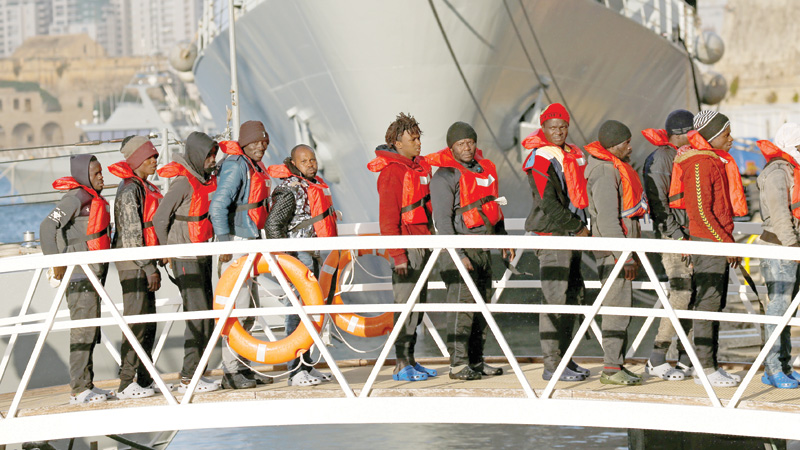

Oye-Plage, France: A helicopter swoops over the northern French coast, its spotlight racing across the deserted beach on a freezing January night, looking for migrants who might put out to sea trying to reach nearby England.
On the ground, a three-man gendarmerie patrol — part of the French police force — tramps through sand dunes, searching an 11-kilometre stretch of beach near Oye-Plage, between the ports of Calais and Dunkirk.
Carrying electric torches and thermal-detecting binoculars to pick up any sign of life, the gendarmes inspect the dunes where people-smugglers sometimes hide rubber dinghies and other equipment prior to launching migrants on their way across the Channel.
The number of those attempting to sail the treacherous waters, braving strong tides in the world’s busiest shipping route, rose to over 500 last year, up from a mere 13 in 2017.
The phenomenon has sparked concern in Britain, where the conservative government, eager to be seen as tough on immigration, has appealed to France to prevent the attempted crossings.
“The objective is to stop them putting out to sea,” said Marie-Laure Pezant, who commands the gendarmerie unit in nearby
Saint-Omer, adding that many of those who manage to slip past the authorities “get into trouble and call on us for help”.
The migrants, many of them Iranian, are helped by people-smuggling gangs who organise the crossings, but who do not themselves board the boats.
They either attempt to steal boats, including fishing vessels moored in ports such as Boulogne-sur-Mer, or launch rubber dinghies from beaches at night.
Pezant’s team inspect a metre deep hole in the sand, likely used by smugglers to stock equipment.
The patrol then heads inland, along a path where rubbish got caught in the brambles. One gendarme picks up a discarded notice on how to use a jerrican.
“Obviously it was dropped here during transportation. That shows it was new equipment,” says chief warrant officer Sebastien Hotin.
Further up a dune, in a wartime German-built bunker, the patrol recently found a sleeping bag, broken razor blades, and empty packets believed to be used by migrants to keep their valuables waterproof.
But it’s rare they make any arrests.
“Given how big the area is we have to control, it’s a lot easier for them to hide than for us to find them,” said Didier, another gendarme who declined to give his surname. — AFP
Oman Observer is now on the WhatsApp channel. Click here



